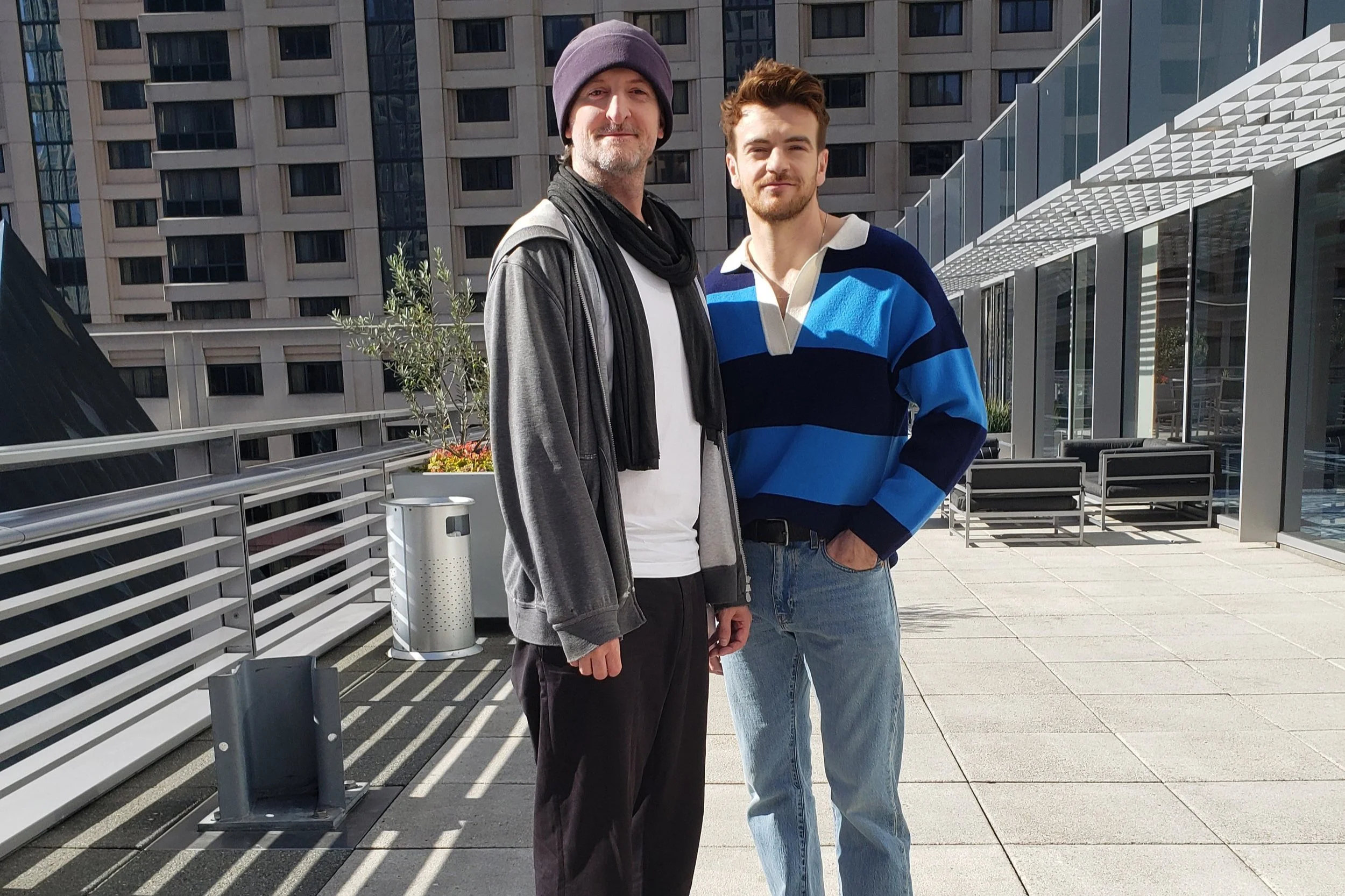Daveed Diggs & Rafael Casal interview: Tackling the racial complexities of 'Blindspotting'

Photo courtesy of Alex Geranios
The Bay Area takes center stage in the new film “Blindspotting”, a vibrant and compelling tale of two friends navigating a modern and gentrified Oakland. One of them is Collin (Daveed Diggs), fresh out of jail and trying to adjust to a city he doesn’t recognize anymore. The other is Miles (Rafael Casal), a hothead with anger in his heart and a knack for getting both friends into trouble.
Diggs and Casal have been best friends since meeting in high school and still consider the Bay Area home. They wrote “Blindspotting” together off-and-on for ten years while they both pursued music careers. The Broadway production of “Hamilton” made Diggs a star, and Casal successfully released his own music, but despite their success they never completely left the Bay Area or their idea for “Blindspotting” behind. Aside from the gentrification angle, the movie also deals with issues of masculinity and police brutality in present day Oakland that give the film a potent sense of urgency.
Diggs and Casal recently traveled to the Bay Area to discuss “Blindspotting” and their ideas behind making it. Both men have been talking this movie up since its rapturous Sundance premiere but have continued the push their dream project forward with lots of energy and enthusiasm. This is a transcription of that conversation.
Q: How were you able to pack so much story into ninety minutes of film?
Rafael Casal: We tried not to make a movie about issues and just make a movie that doesn’t avoid issues. That makes it easy and not feel like we had to wrap everything up with a bow. As an audience I think we fill in those gaps because it’s a reflection of our day-to-day existence. We are musicians by trade and not having things feel too precious and being open to editing is in our DNA as artists.
Daveed Diggs: The storytelling also reflects a particular Bay-ness.
Q: There seem to be a few recent films that are set in the Bay Area with a magical realism angle to them like “Black Panther” and “Sorry to Bother You.” Do you think “Blindspotting” also fits into that conversation?
Diggs: People keep putting it in the conversation. There aren’t a lot of movies that come out of Oakland and get on anybody’s radar, so to have a year where three of them do is a big deal. As far as magical realism, Rafael has a whole album about how the Bay Area is Whoville. There’s a sense that there’s this vibrant, exciting and very different world here but that nobody really knows about if you’re not in it. It feels that whatever the version of Oakland is being advertised is not the Oakland we know.
Q: Can you talk about your writing process together? Certain writing teams have their own process of working together, what’s yours?
Casal: We wrote the script five or six times over in the course of ten years because we almost made it a few different times. The through line to our process is it’s ninety percent conversation and ten percent execution. Getting it on the page is the last thing. We’re specificity nerds and we talk the details to death and the function behind the details.
Q: Collin gets a moment of catharsis when he confronts that cop, but I don’t think anyone was expecting the cop to be as empathetic as he is. What was your thinking behind that decision?
Diggs: It’s not useful to have easy villains. If you make that police officer a monster there’s no conversation. He’s a person, none of us believe that when you kill a person there’s no effect. Ethan (Embry) is also an incredible actor, and he made him more empathetic than we could’ve imagined. He says six words of dialogue and everyone walks away with a palpable feeling of confusion and pain. He’s not a monster, he’s a person who did a monstrous thing.
Casal: In a system that supports it.
Q: How has your view of gentrification changed since you started writing this script?
Casal: I’m less angry.
Diggs: Generally.
Casal: I’m generally less angry. I just don’t see people as having conscious ill-intent. I’ve gained enough experience and educated myself enough to know how systemic things work.
Diggs: I’ve been a gentrifier. When I moved to New York I moved into somebody’s apartment because that’s all I could afford. I have become more focused in how do we participate in the culture of a place. And when I move into a new neighborhood, how can I check my blindspots a little more. To be a little more aware of the culture that has been there and made it desirable for me to move in there. It’s more complicated than just gentrifiers are villains.
“Blindspotting” is now playing in limited release.





